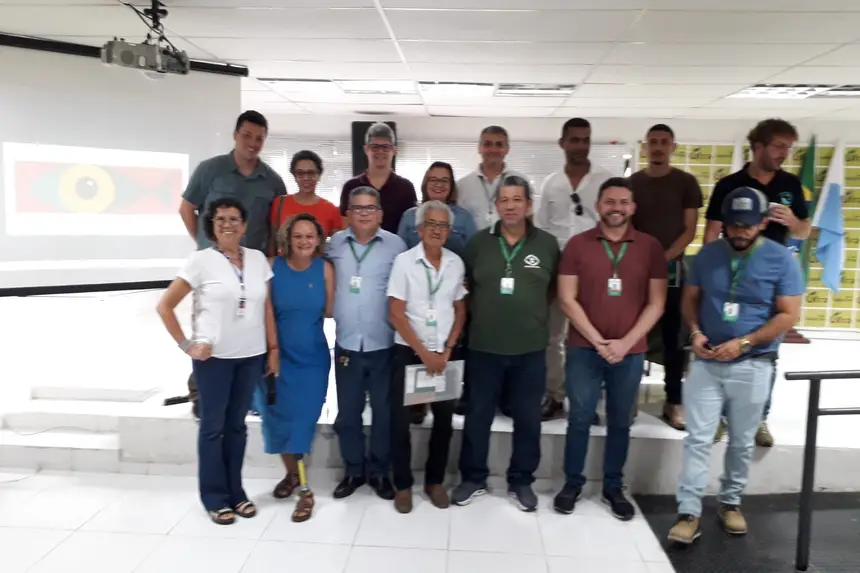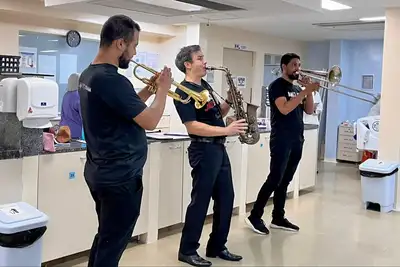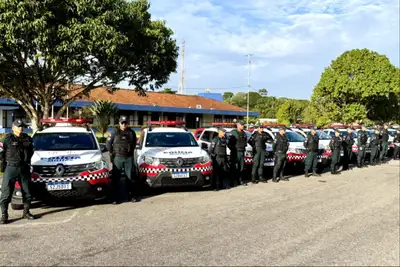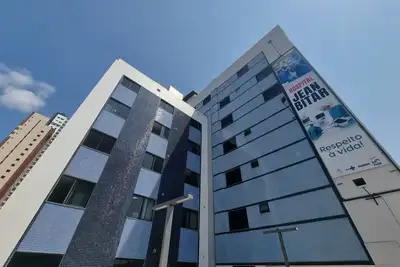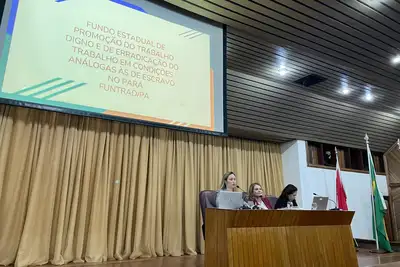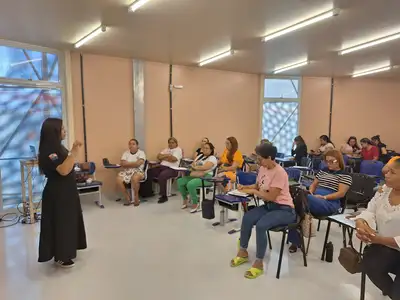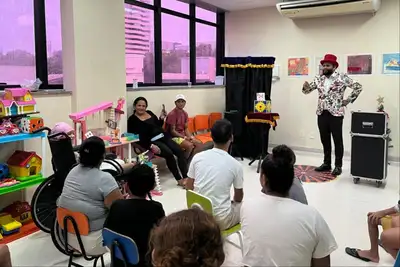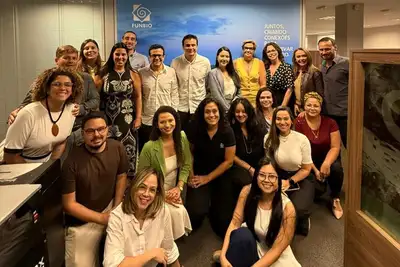With Emater, fish farmer from Capitão-Poço receives financial incentive for production
'Rural Funding is a sustainable boost to the activity, it represents financial viability,' emphasizes Emater agronomist José Pio Jr.
According to his own words, the dream of Francisco dos Santos, 58 years old, a resident of the rural area of Capitão-Poço, on the Rio Capim, accompanied by the local office of the Technical Assistance and Rural Extension Company of the State of Pará (Emater), is to live from fish farming: “I think like this: raising my fish to be enough for sustenance, comfort, food, and profit. That it becomes a real business,” he says.
Inherited land, the São Francisco Farm constitutes about 30 hectares within the Carrapatinho community, in the federal settlement Pau Amarelo: there, along with orange, cassava, and passion fruit crops, there are three dug tanks, with a usual capacity for more than two thousand and 200 tambaquis. The next harvest is scheduled for November.
Last year, through Emater, Santos and his wife, Maria Irisnete Nascimento, 52 years old, received resources from the Rural Productive Activities Funding Program (Rural Funding), a partnership between the Government of Pará and the federal government to encourage family farming enterprises. Under the guidance of the extension team, the R$ 4,600, which do not need to be paid back, were mainly used to buy fingerlings and feed and to install an electricity point in the pond.
“Rural Funding is a trigger for sustainable activity enhancement because it represents financial viability and brings ideas to life: the fish farmer resumes, expands, and improves systems. The results accumulate in the short, medium, and long term: more productivity, higher quality products, food and nutritional security, and income generation,” summarizes agronomist José Pio de Miranda Jr., from the local Emater office in Capitão-Poço.
Ver-o-Peixe
The Emater project for the Santos-Nascimento Rural Funding was designed to strategically integrate with the Ver-o-Peixe project, from the Brazilian Agricultural Research Corporation (Embrapa) and the Federal Rural University of the Amazon (Ufra). Since 2021, the family's experience with fish farming has been strengthened with social technologies disseminated in a multi-institutional manner.
“I have been raising fish for 15 years, but my way was rustic, without advancement. When Embrapa and Ufra arrived, a lot changed,” says Santos.
At the Field Day of the Ver-o-Peixe Project, on Thursday (28), in the auditorium of the Ufra Campus, in Capitão-Poço itself, Santos shared his story. “I was even shy when they invited me because I can't read or write, I am a rough man. But, upon arriving, I understood that knowledge is much more: I have a path to walk, I have this wisdom, I think everyone can exchange knowledge, the situation is very honorable and makes me very happy,” he says emotionally.
Additionally, forest engineer Márcio Nagaishi, a master in forest sciences, stationed at the Technical Assistance and Rural Extension, Research, Development, and Innovation Unit (Uaterp) of Emater in Belém, presented the Rural Funding Program to around 80 family farmers, professionals, and students.
The complete program of the event included lectures on data from family fish farming in Capitão-Poço, on biometrics as a digital tool, and on aquaponics.
Current Situation
In Capitão-Poço, Emater currently serves directly 15 families that cultivate tambaqui and tilapia in dug and suspended tanks. Fish farming is an alternative for work, income, and food security.
“The diversification of activities is a consolidated practice in the family farming properties of the municipality: in addition to the significant tradition of citrus, which positions Capitão-Poço as the largest producer in the state, farmers work with pineapple, açaí, poultry, cocoa, goat farming, palm oil, cassava, livestock, black pepper, and pig farming,” enumerates the head of the local Emater office in Capitão-Poço, veterinarian Raimundo Nunes, a specialist in Pasture and Animal Production in the Humid Tropics.
Text by Aline Miranda


